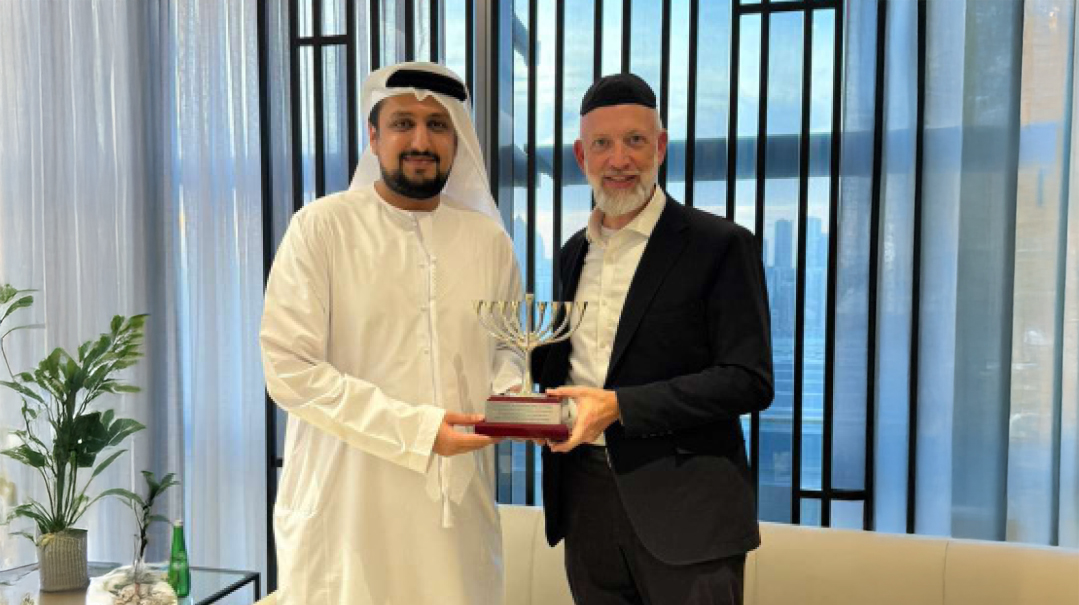All Hands on Deck

So what is the art of volunteering? What are the essential leadership traits required?
There’s a hidden, powerful force behind the organizations that service our Jewish communities: volunteers. Our institutions — from Bikur Cholim to our day schools to our shuls — thrive due to the unpaid, behind-the-scenes volunteers who make things happen. Community members serve on boards, serve as committee heads, and volunteer as worker bees to plan and execute events, initiatives, and programs. By offering their talents and services at no cost, volunteers enable our organizations to achieve their goals more easily. And our institutions are bolstered by the support of community members who demonstrate their commitment by investing their time, energy, and resources.
Volunteerism has its own inherent challenges, and its own art. Over the years, I have been involved in volunteering for several causes, serving in various capacities from visionary to worker bee. I have said yes, I’m on board; I have said no, not right now. I have struggled to attend meetings and felt frustrated about not being able to give my best to everything I care about. (I also recognize my limitations and conflicting obligations as a wife, mother, and human being.)
On the other hand, organizations face their own challenges in depending on individuals who are volunteering their time and talents for free. Volunteers don’t have to show up to the office, clock in hours during a workday, or sit around a boardroom table in the middle of the afternoon for a scheduled meeting. Their time is their own, and there is only so much an organization can expect when depending on people who are sharing their skill set on their own volition.
Many organizations are challenged in even finding volunteers. Members of our communities want to help, and understand that our communities are stronger due to our efforts, but struggle to find time in addition to work and family obligations. Still, communal change in our communities is often thanks to those not employed by any particular organization. It’s the grassroots efforts of volunteers that grow our existing institutions and support new endeavors.
Volunteers, for their part, are acutely aware that the time they devote is balanced with other responsibilities, whether it be jobs, family, or other obligations. Volunteers may not be able to stop everything to respond to an urgent email or show up to an important planning meeting. Their volunteering is essentially a side gig that sometimes can feel burdensome when the juggling becomes too intense. Family obligations and paid jobs will rightfully come first. The tension and conflict that ensue can be emotionally draining. Lack of time, not lack of idealism, seems to be the biggest factor in preventing community members from committing themselves wholeheartedly to communal endeavors.
Another challenge facing lay leaders is burnout. Burnout is due to two factors: overextending oneself and feeling underappreciated. When volunteers work too hard and/or do not have enough capable or willing teammates to share the burden, burnout can be a quick result. Volunteers who are also juggling a lot at home and at work, but are idealistic about building the community, are particularly prone to burnout. In addition, when volunteers are not thanked or recognized properly, they question if their efforts were appreciated or even worth it. Individuals need to know how much of their time they can and should realistically devote to communal causes, and leaders need to prioritize and show gratitude toward volunteers — not just for retention purposes, but because it’s the right thing to do.
If you are a community member deciding how and where to contribute your time, it’s essential to consider personal and familial needs as well as communal needs. Identify your unique skill sets and how they can be utilized in helping start new initiatives or improve current ones. Because of the challenges inherent in volunteering, it’s important to be selective, choosing projects or institutions you feel passionate about. Dedication and commitment are borne from passion for the cause. When volunteers are truly excited about the mission, burnout — a near-inevitable accessory — can be overcome more easily.
One fundamental issue that has profound ramifications on volunteerism in the Orthodox world is the question of what community even means these days. Is my community determined by the yeshivah I went to, the tzedakah organizations I give to, the school I send to, or the shul I belong to? If I go to one shul for weekday Shacharis and another for Shabbos morning davening, and another for Minchah-Maariv, where do I really belong? Exactly which community am I needing to build? What achrayus do I have to “the community” if my loyalties are split and I don’t feel particularly responsible to anyone? The essential leadership traits of taking ownership and personal responsibility come under question if I’m literally all over the place and don’t feel particularly affiliated anywhere.
So what is the art of volunteering? What are the essential leadership traits required? The first thing to know is that the best volunteers are often busy volunteering for something else. Effective volunteers are passionate about the cause, dedicated to the vision, motivated and invested, and are willing to get their hands dirty. No doubt, these volunteers have good time-management skills, can be held accountable, follow through with commitments, and have a strong sense of personal responsibility. Obviously, such volunteers are or could be very successful employees and employers, and those who are or have been professionally employed bring a wealth of abilities to their projects. This past year, I’ve personally worked with three amazing women: One is a Harvard-educated company VP who’s in law school and currently in between jobs; the second is a stay-at-home, multitalented blogger with a serious skill set and sense of responsibility; and the third is a mom of four who juggles a full-time job with a family while she’s back in school for another master’s degree. Each brings her own toolbox to the project.
These women carve out time for the cause, while finding a balance between communal and personal responsibility because serving and caring for the klal is a prime value. For our particular project — creating a local “chizuk retreat” for frum women — they view their work as both a privilege and a necessity. They believe that our community and our families are stronger when our mothers are stronger. Using their abilities to build something that directly impacts people’s lives is worth the effort, and the dividends and satisfaction in giving toward a cause they are passionate about motivates them to do it all over again the next year. The attitude that prevails is that as long as we have the ability, wherewithal, and support, we’re doing this, in addition to our other obligations.
While each individual volunteer brings a particular skill set to the table, the force of a volunteer’s impact ultimately depends on his or her ability to be a team player. That also necessitates the delicate dance of knowing when to assert and to step back, to lead and to be led. Being a team player is all about how we deal with conflict and how we motivate ourselves and others to be held accountable. It’s also about building up and acknowledging others and giving teammates the spotlight, while also recognizing when you need to get under it yourself. Finally, being a team player is how we get out of the way to make whatever initiative we’re involved in primarily about the success of the initiative, not about our personal success, status, or ego.
At its root, successful lay leadership in the Orthodox communal world is all about individuals identifying what they are passionate about and focusing on ways they can use their abilities to help. But it’s a two-way street: To support lay leaders, our organizations need to provide the resources and the development opportunities for volunteers to dedicate portions of their time in manageable and effective ways. They also need to identify those community volunteers and lay leaders with potential and give them the space to grow and develop their talents and skills. And we members of the frum community need to recommit ourselves to the values of community building, klal work, and communal responsibility. Any skill we bring to the table is needed and worthwhile. Not only will our communities benefit, but our personal lives will be enriched with an added sense of meaning, vibrancy, and purpose.
When we volunteer in any capacity, keep in mind that we are doing holy work. We don’t have to chair big projects or have our names emblazoned on letterheads. But we do need to give something in some way to make a statement to ourselves, our organizations, and the next generation that we are invested in something bigger than ourselves. That when we take from the mosdos in our midst, we also give back.
We can stretch. We can give. We will all gain.
(Originally featured in Mishpacha, Issue 802)
Oops! We could not locate your form.







